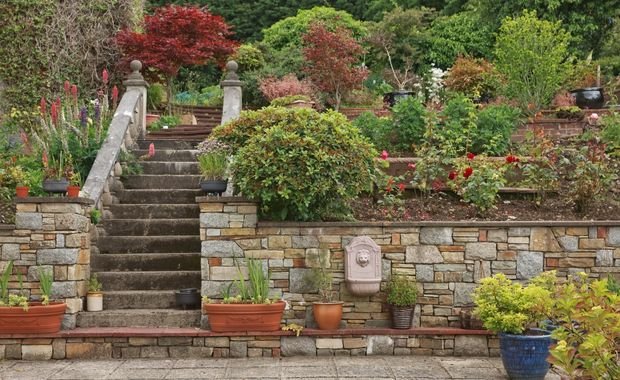Installing a custom driveway is a significant investment that can enhance your home’s curb appeal, increase its value, and improve your daily living experience. Whether you’re upgrading an existing driveway or starting from scratch, the process requires careful planning and professional expertise. If you’re considering a custom driveway installation in Tigard, understanding what to expect can help you prepare for a smooth and successful project.
1. Initial Consultation and Planning
The first step in the custom driveway installation process is the initial consultation with a professional contractor. During this phase, you’ll discuss your vision, needs, and budget. The contractor will assess your property, taking into account the size, slope, and existing landscaping. This assessment is crucial for identifying any potential challenges, such as drainage issues or uneven terrain, that need to be addressed before construction begins.
You’ll also discuss design options, including the choice of materials, driveway layout, and any additional features like lighting, borders, or landscaping. This is your opportunity to personalize your driveway to suit your aesthetic preferences and practical needs. The contractor may provide you with design mock-ups or examples of similar projects to help you visualize the final result.
2. Selecting Materials
Choosing the right materials for your driveway is a critical decision that will impact its durability, appearance, and maintenance requirements. Your contractor will guide you through the various options, considering factors such as your home’s architectural style, local climate, and budget.
- Concrete: Known for its durability and versatility, concrete is a popular choice for custom driveway tigard. It can be customized with different finishes, colors, and patterns to achieve a unique look.
- Pavers: Pavers offer a wide range of design possibilities and are available in various materials, such as brick, stone, and concrete. They are durable and can be replaced individually if damaged.
- Asphalt: Asphalt provides a smooth, clean surface and is relatively quick to install. It’s a cost-effective option that requires regular maintenance to extend its lifespan.
- Gravel: Gravel is an affordable option that offers excellent drainage. It’s well-suited for rural or country-style homes but may require more maintenance than other materials.
- Permeable Materials: For eco-conscious homeowners, permeable pavers or porous concrete allow water to pass through the driveway, reducing runoff and promoting groundwater recharge.
3. Site Preparation
Once the design and materials are finalized, the next step is site preparation. This phase involves clearing the area where the driveway will be installed, removing any existing pavement, vegetation, or debris. The contractor will then grade the site to ensure proper drainage and create a stable foundation for the driveway.
Site preparation is a crucial step in the installation process. Proper grading helps prevent water from pooling on the surface or seeping into the foundation, which can cause cracks and other damage over time. The contractor may also install drainage solutions, such as French drains or drainage channels, to manage water runoff effectively.
4. Installation Process
The installation process varies depending on the materials you’ve chosen for your custom driveway. Here’s a general overview of what to expect during this phase:
- Concrete Driveways: For a concrete driveway, the contractor will first set up wooden forms to define the edges of the driveway. Next, they’ll pour the concrete into the forms and smooth it out using specialized tools. If you’ve opted for stamped or colored concrete, the design will be applied before the concrete sets. The driveway will then be left to cure for several days before it’s ready for use.
- Paver Driveways: For paver driveways, the contractor will lay a base layer of gravel or sand to provide a stable foundation. The pavers are then arranged according to your chosen pattern, and a layer of sand is spread over the surface to fill the joints. The pavers are compacted to lock them in place and create a smooth, even surface.
- Asphalt Driveways: Asphalt driveways begin with a base layer of gravel, followed by a layer of hot asphalt. The asphalt is spread evenly and compacted to create a smooth surface. Asphalt driveways can typically be used within 24-48 hours after installation.
- Gravel Driveways: For a gravel driveway, the contractor will spread a layer of crushed stone over the graded site. Additional layers of gravel may be added to achieve the desired depth. The surface is then leveled and compacted to create a stable, durable driveway.
5. Finishing Touches
After the main installation is complete, the contractor will focus on the finishing touches that bring your custom driveway to life. This may include adding borders or edging, installing lighting, or integrating landscaping elements. These features not only enhance the driveway’s appearance but also improve functionality and safety.
If your driveway includes decorative elements like stamped patterns or colored concrete, the contractor will apply a sealant to protect the surface and enhance the colors. For asphalt driveways, a sealant may be applied several months after installation to protect against the elements and extend the driveway’s lifespan.
6. Final Inspection and Maintenance Tips
Once the installation and finishing touches are complete, the contractor will conduct a final inspection to ensure everything meets your expectations. They’ll also provide you with maintenance tips to keep your driveway in top condition. Regular maintenance, such as sealing, cleaning, and minor repairs, will help preserve the driveway’s appearance and functionality for years to come.
Conclusion
A custom driveway installation in Tigard is a significant project that requires careful planning, expert craftsmanship, and attention to detail. By understanding what to expect throughout the process, you can prepare for a successful installation that enhances your home’s curb appeal, increases its value, and provides lasting enjoyment. Whether you choose concrete, pavers, asphalt, gravel, or permeable materials, a custom driveway is an investment in both the beauty and functionality of your property.



